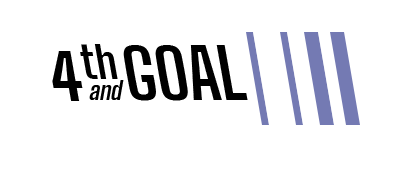Google Ads:
What You Should Know in 2020
The cost of Google Ads campaigns are is rising at a robust rate as Google rakes in billions of dollars. How can you get and sustain results in competitive markets?
Let’s Start at the Beginning
Are Google Ads right for your business? Demand capture
If there is existing demand in the market, you can capture it and guide potential customers to your products and services
Berkshire Hathaway, where Buffett is CEO, owns 10.8% of the stock. He confides, “I go to bed happy at night knowing that hair is growing on the faces of billions of males and on women’s legs around the world while I sleep. It’s more fun than counting sheep.”
- Broad Match
Google makes it easy to find customers via keyword traffic. All you have to do is add your billing info, an ad, your targeted keywords, and you are going. But know that your keyworrds are placed in Broad Match by default. Broad match means that your keywords plus a bunch of possibly unrelated keywords may trigger your ad to show. For example, if your keyword was “divorce lawyer”, a broad match may trigger your ad on keywords such as “divorce lawyer”, “no-cost divorce”, and “free lawyer”. - Broad Match Modifier
The Broad Match Modifier match type allows you to leverage Broad Match keywords, but allows you to be more restrictive around the specific queries that will trigger your ad. Broad Match Modified keywords work by appending a ‘+’ to the specific word in your keyword phrase that you want to lock in place. When you lock a word in place, you are telling Google that you only want your ad to show when that word appears in the search query. For example, “+divorce lawyer”, a broad match may trigger your ad on keywords such as “divorce lawyer near me”, “best divorce lawyer”, and “Madison divorce lawyer”. - Phrase Match
Phrase Match will only appear when a user searches for your exact keyword phrase, in word order. - Exact Match and Close Variant Matching
Exact Match used to be the most restrictive match type option in AdWords.
Let’s Start With a Typical Ad Account
Google offers a few choices: broad, modified broad, phrase, & exact. Which should you choose? Of course, the answer is “It depends.” But the key question to ask yourself is “How are your targets searching and how can you get infront of them?”
- Broad Match
Google makes it easy to find customers via keyword traffic. All you have to do is add your billing info, an ad, your targeted keywords, and you are going. But know that your keyworrds are placed in Broad Match by default. Broad match means that your keywords plus a bunch of possibly unrelated keywords may trigger your ad to show. For example, if your keyword was “divorce lawyer”, a broad match may trigger your ad on keywords such as “divorce lawyer”, “no-cost divorce”, and “free lawyer”. - Broad Match Modifier
The Broad Match Modifier match type allows you to leverage Broad Match keywords, but allows you to be more restrictive around the specific queries that will trigger your ad. Broad Match Modified keywords work by appending a ‘+’ to the specific word in your keyword phrase that you want to lock in place. When you lock a word in place, you are telling Google that you only want your ad to show when that word appears in the search query. For example, “+divorce lawyer”, a broad match may trigger your ad on keywords such as “divorce lawyer near me”, “best divorce lawyer”, and “Madison divorce lawyer”. - Phrase Match
Phrase Match will only appear when a user searches for your exact keyword phrase, in word order. - Exact Match and Close Variant Matching
Exact Match used to be the most restrictive match type option in AdWords.
